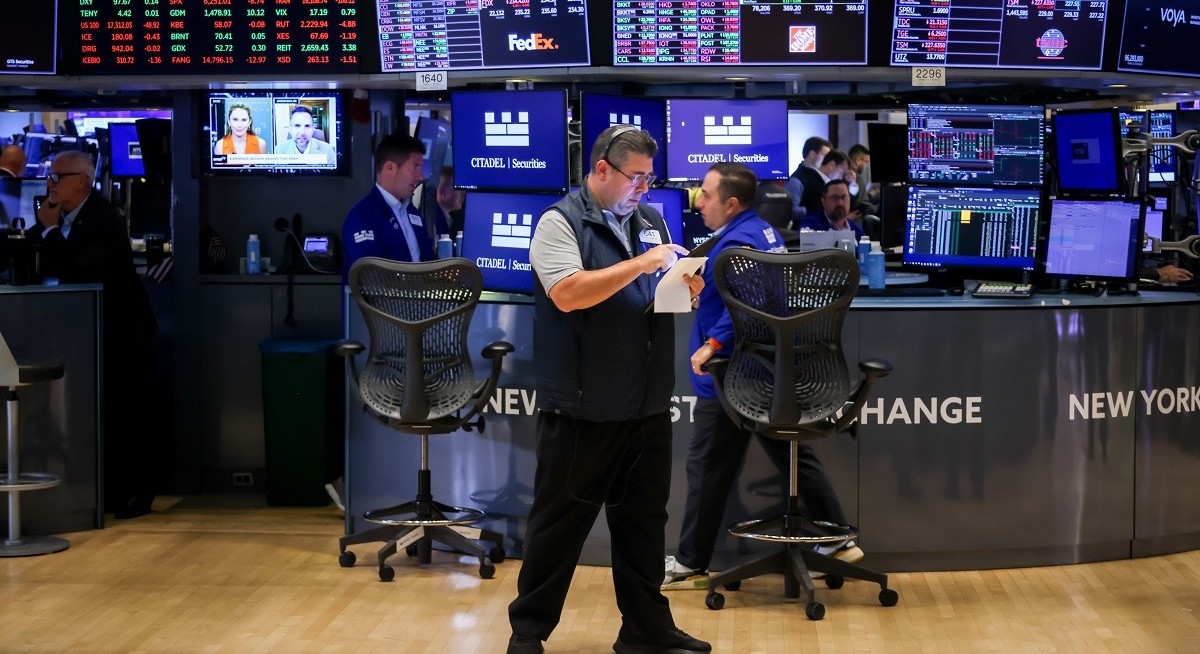“Today’s historically strong fundamentals suggest IG corporates are an attractive option to provide defensive ballast and to fulfil the role of capital preservation in portfolios. Additionally, with inflation gradually stabilising and central banks cutting rates, duration is once again providing a useful source of diversification,” said Peter Becker and Flavio Carpenzano, Investment Directors at Capital Group, in a July 2025 report.
Recent market volatility has underscored the importance of maintaining a defensive allocation. The year has seen significant swings, with global equities falling sharply in the aftermath of President Donald Trump’s “Liberation Day” trade measures before rebounding, and US Treasury yields moving nearly 80 basis points in both directions. “One important lesson we think investors can draw from such volatility is the value of maintaining a solid defensive allocation to help smooth portfolio results. We think global IG corporate bonds are an effective way for investors can achieve this,” say Becker and Carpenzano.
Beyond attractive yields, IG corporate bonds provide an income cushion that can help offset price volatility. This becomes even more relevant as central banks lower rates, potentially reducing returns from cash holdings. “The current high level of yield compares particularly favourably with cash, which is likely to see declining returns as central banks around the world continue to cut rates. On the other hand, the longer maturity profile of bond markets means today’s higher bond yields are locked in for longer,” the duo notes.
Credit fundamentals in the IG corporate bond market remain robust. Corporate leverage, as measured by net debt to ebitda, is below post-Global Financial Crisis medians, and companies are in solid financial health despite ongoing trade uncertainties. They believe that it is encouraging that, despite the current uncertainty over trade, fundamentals show companies remain in good health.
See also: Taiwan’s AI wealth is spilling across Asia and Singapore is positioning itself as the hub
Resilience in market turbulence
IG corporate bonds have also demonstrated resilience during periods of market stress. Following the introduction of reciprocal tariffs earlier this year, equity markets fell sharply, and high-yield credit came under pressure. By contrast, IG corporate bonds were broadly flat over that period, supported by their duration profile.
See also: Is the Chinese stock market an undervalued giant?
“In the current environment of strong corporate fundamentals and a solid economy supported by a resilient consumer, we have greater comfort that IG corporates can provide portfolios with the required defensive ballast,” adds the duo.
While spreads in the IG space are tight by historical standards, Becker and Carpenzano believe there are selective opportunities for bottom-up investors. Through a deep fundamentals research approach, Capital Group analysts continue to find attractive total return opportunities. Some good examples of these can be found in banks, utilities and pharmaceutical companies.
In banking, Capital Group’s portfolios have shifted focus from US money centre banks — where value has largely been realised — to European institutions, particularly in Spain, Italy and Greece.
Becker and Carpenzano view that many banks in these countries have strong and improving fundamentals. At the same time, the underlying sovereign’s economic strength also continues to improve. They believe that this combination provides a strong impulse for both to receive further ratings upgrades. They also highlight that European banks have now delivered 19 consecutive quarters of earnings beats, and asset quality, capital and liquidity remain strong.
Utilities are another favoured area, especially electric utilities, which offer defensive characteristics and regulated revenue streams. The sector is benefiting from rising electricity demand driven by the expansion of AI and data centres.
“We believe one of the best ways to capture this opportunity is currently through Californian electric utilities, where valuations are attractive while the sector benefits from the state’s wildfire fund and a cap on liabilities,” say Becker and Carpenzano.
In pharmaceuticals, valuations have become more compelling, with spreads less tight than in the past. While the sector faces headline risks from tariffs, drug pricing reforms and US healthcare policy, its defensive nature and essential services underpin the investment case.
For more stories about where money flows, click here for Capital Section
Sector outlook steady
Despite these headline risks, they believe that the long-term investment thesis for the sector remains strong, adding that their portfolio exposure is highly selective, with over 40% of sector holdings concentrated in two companies.
Becker and Carpenzano stress that IG corporates not only offer income and capital preservation but can also outperform sovereign bonds in certain conditions. “Historical analysis shows that the higher yield provided by IG corporates has helped the sector to deliver stronger results than sovereigns,” they say, adding that IG corporates have provided similar defensive characteristics to sovereigns in all but the most severe market sell-offs.
Importantly, in the year after such periods of extreme volatility, corporate bond results have historically been superior to US Treasuries.




